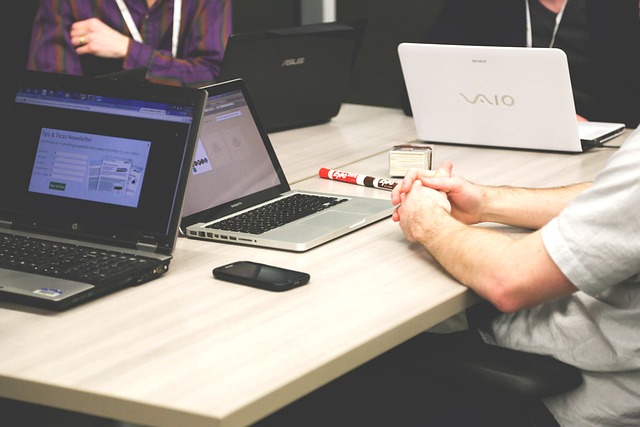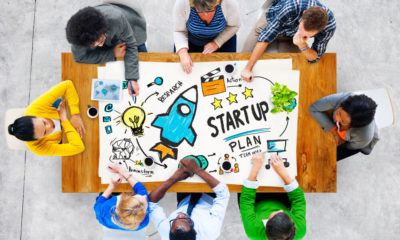Impact Investing
The SIM Report Notes that the Growth of Incubators and Accelerators in Italy is Restarting
The latest report reveals Italy has 262 accelerators and incubators, mainly in the North-West, led by Lombardy. Despite 11 new establishments in 2022, some have ceased operations. These entities have supported 2,850 startups, generating a turnover of over €500 million. They offer diverse services including managerial support, funding assistance, and access to physical spaces.

The Social Innovation Monitor (SIM) research team, based at the Polytechnic of Turin, presented the results of the analyzes relating to the ecosystem of incubators and accelerators in Italy.
The report was created by the Social Innovation Monitor (SIM) research team thanks to the collaboration of the main partner InnovUp and with the support of the Giacomo Brodolini Foundation, Neolithic Evolution, Black Pear and Social Innovation Teams (SIT).
Read more about the incubators and accelerators in Italy, and find the most important financial news of the day with the Born2Invest mobile app.
The evolution of incubators and accelerators in Italy
The Report shows that there are 262 accelerators and incubators in our country and they employ a total of 1,950 employees ; the majority operate in the North-West of our peninsula , with a prevalence in Lombardy, where there are 61. In the rest of the country, Emilia-Romagna, Lazio, Campania and Tuscany stand out for their commitment, with 32, 25, 21 respectively and 19 incubators.
During 2022, 11 new incubators were created, although some incubators created in previous years have ceased their activities.
“Incubators and accelerators in Italy are an important element of the entrepreneurial system. Despite the birth of new entities with partly overlapping activities and specializations, incubators and accelerators maintain their specificities and evolve to become an increasingly complete and useful player, also for companies already active on the market with Open Innovation programs” highlights the Prof. Paolo Landoni, Research Director.
The activities of incubators and accelerators in Italy
According to the SIM report, in fact, the incubators and accelerators in Italy have incubated 2,850 startups and have a turnover of over 500 million euros.
As highlighted by the Deputy Director of Research, Davide Moro , “ the added value brought by incubators and accelerators in our ecosystem is not limited to supporting the birth of new organizations. In fact, 86% of incubators and accelerators declared that they also carry out activities not directly attributable to incubation and acceleration activities. Among the most frequent activities we find participation in projects and tenders, management and promotion of events, scouting and open innovation activities for corporate companies and/or other entities, coworking services. ”
Compared to the pandemic situation, there has been a progressive return to physical spaces . During 2022, the average value of square meters made available for incubation activities has almost tripled (over 8000 square metres).
Also compared to last year, the funding received by the incubated organizations increased, reaching an average value of over €3 million for the startups supported by each incubator (from €1.97 million in 2021).
This shows that, compared to a general contraction in investments, those in the pre-seed and seed phases – typically the phases in which the startups supported by these actors find themselves – have remained stable in number and have increased in average amount.

The services offered
As regards the main services offered by accelerators in Italy, the first is “support for developing relationships “, followed by ” managerial support ” and “support for seeking funding “. Other relevant services are access to physical spaces and entrepreneurial and managerial training .
The weight of the social and environmental impact
As in previous years, this Report also placed a special focus on the social and environmental impact of incubators and incubated startups.
The report’s analyzes show that over 60% of incubators support organizations with significant social or environmental impact.
Furthermore, more than half of incubators in Italy use specific methodologies in order to measure their social or environmental impact as an organization. Among the methodologies adopted we can find, for example, the BIA (Benefit Impact Assessment), the impact report based on the theory of change, the Global Sustainability Model by Oxford Economics and the use of indices such as the SROI.
The most represented sectors, for incubated organizations with significant social or environmental impact, are those related to health and well-being (including sport) and community development.
Finally, a focus was dedicated to the inclusiveness of the ecosystem and gender equality. Unfortunately, as highlighted by the results, we are still far from gender equality in the ecosystem. In 2022, only 35% of employees in the Italian incubator and accelerator ecosystem were female.
The role of Government and Institutions
Attention to the incubator ecosystem also comes from the Government and the Institutions.
Dr. Alberto Castronovo, Head of the Internationalization Unit – Cabinet of the Ministry of Enterprises and Made in Italy spoke about the upcoming legislative changes and declared that the work “is at a good stage regarding the revision of the Startup Act 2.0. There is a need to improve a law that dates back to 2012 and therefore, according to some of the players in the ecosystem, needs to be revised. We have done it and are doing it with a working group that involves all the main players in the entrepreneurial ecosystem.”
He then illustrated the main upcoming innovations: from the updating of definitions and requirements, to the introduction of new incentives, to the establishment of the Agency for startups.
The testimonies of Digital Magics, LVenture and Innovup
During the round table discussion, Noa Segre, Head of Value Creation at Digital Magics, spoke and delved into one of the events of the year in the incubators/accelerators world, the merger between LVenture Group and Digital Magics.
Dr. Segre stated that, “with the merger, operational from next April 1st, between us and LVenture Group we are giving life to ZEST: the Made in Italy player that looks to internationality in the field of early-stage and seed investments, acceleration of open innovation and corporate venturing startups.”
Stefano Soliano, Vice President of InnovUp , the non-profit and impartial association that represents and unites the Italian innovation chain, and main partner of the Report on Incubators and Accelerators in Italy, also participated in the report presentation event.
Soliano, underlined that the research results give us the reality of a healthy innovation chain, which creates jobs, produces added value and attracts funding, but which is still characterized by great unexpressed potential.
To create a virtuous growth mechanism for the startups and innovation centers involved today, a review of the current regulatory context is more necessary than ever, both in terms of the definitions and benefits provided for the subjects who already participate, and for everyone those who would like to be part of it.
“For this reason , the work we are carrying out with MIMIT for the creation of a Startup Act 2.0 in which we have proposed a paragraph dedicated to updating the taxonomy of “certified incubators” is fundamental – in order to also include accelerators and startups study among the “certified operators” of the supply chain – and to the rebalancing between the costs of certification and the advantages associated with it.
__
(Featured image by Pixabay via Pexels)
DISCLAIMER: This article was written by a third party contributor and does not reflect the opinion of Born2Invest, its management, staff or its associates. Please review our disclaimer for more information.
This article may include forward-looking statements. These forward-looking statements generally are identified by the words “believe,” “project,” “estimate,” “become,” “plan,” “will,” and similar expressions. These forward-looking statements involve known and unknown risks as well as uncertainties, including those discussed in the following cautionary statements and elsewhere in this article and on this site. Although the Company may believe that its expectations are based on reasonable assumptions, the actual results that the Company may achieve may differ materially from any forward-looking statements, which reflect the opinions of the management of the Company only as of the date hereof. Additionally, please make sure to read these important disclosures.
First published in Crowdfunding buzz. A third-party contributor translated and adapted the articles from the originals. In case of discrepancy, the originals will prevail.
Although we made reasonable efforts to provide accurate translations, some parts may be incorrect. Born2Invest assumes no responsibility for errors, omissions or ambiguities in the translations provided on this website. Any person or entity relying on translated content does so at their own risk. Born2Invest is not responsible for losses caused by such reliance on the accuracy or reliability of translated information. If you wish to report an error or inaccuracy in the translation, we encourage you to contact us

-

 Cannabis2 weeks ago
Cannabis2 weeks agoCannabis Clubs Approved in Hesse as Youth Interest in Cannabis Declines
-

 Crowdfunding6 days ago
Crowdfunding6 days agoWorld4All, a Startup that Makes Tourism Accessible, Surpasses Minimum Goal in Its Crowdfunding Round
-

 Crypto3 days ago
Crypto3 days agoThe Crypto Market Rally Signals Possible Breakout Amid Political Support and Cautious Retail Sentiment
-

 Impact Investing2 weeks ago
Impact Investing2 weeks agoEuropeans Urge Strong Climate Action Amid Rising Awareness and Support

























